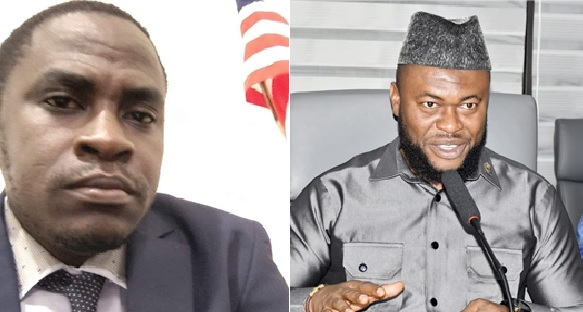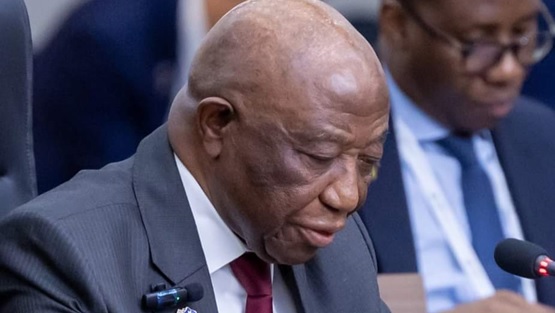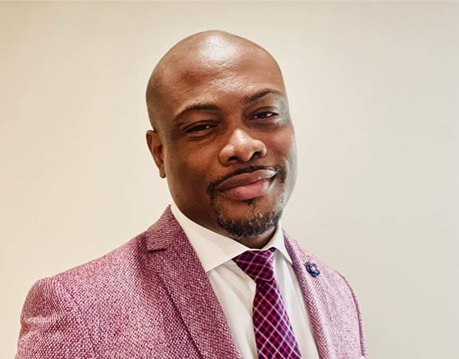MONROVIA – The Liberian political scene has recently been stirred by a public exchange on Thursday, January 2, 2024, between Matthew Nyanplu, a former loyalist of the Unity Party and President Joseph Boakai, and Josiah Joekai, the Director General of the Civil Service Agency (CSA). Nyanplu’s vocal criticisms of the Boakai administration, particularly accusations of nepotism and incompetence, have not only ruffled feathers within the government but also drawn the attention of Joekai, who offered his own perspective on career and governance in a lengthy Facebook post.
In his post titled “A little piece of advice to my junior brother, Matthew Nyanplu, based on my experience,” Joekai shared his personal journey of navigating political and professional challenges in Liberia. He recounted resigning from his roles as Political Officer in the office of Speaker Edwin Snowe in 2007 and as Director of Civic and Voter Education in 2015 due to policy differences. He emphasized the importance of recalibrating one’s career when faced with insurmountable disagreements, citing his own decision to relocate to the United States, secure a lucrative job, and pursue advanced education, culminating in a Ph.D.
Joekai’s advice to Nyanplu was clear: take a step back, recalibrate, and explore new avenues for professional growth. “Consider your resignation and departure from government as an opportunity to advance yourself,” Joekai urged. He concluded with an optimistic note, expressing hope that Nyanplu would find his advice helpful.
However, Nyanplu’s response was unequivocal and impassioned. Rejecting Joekai’s advice, he declared his unwavering commitment to the fight for good governance and a better Liberia. For Nyanplu, his life’s work is not merely a career but a mission rooted in a deep-seated belief in Liberia’s potential. “Good governance and a better Liberia are my life,” he asserted, outlining his steadfast dedication to his vision of a prosperous, free, and developed nation.
Nyanplu recounted his journey, from campaigning for the Unity Party in 2017 to opposing former President George Weah’s re-election bid, as integral to his identity and purpose. He revealed that his decision to serve as an assistant minister under what he described as “visibly incompetent people” was not for personal gain but for the country’s benefit. His educational pursuits, he noted, were all aligned with his mission to uplift Liberia.
In a defiant tone, Nyanplu made it clear that stepping back was not an option. “I WILL NOT bow out, and I will NOT resign from that,” he declared. He reiterated his resolve to challenge the current leadership, which he believes falls short of the standards for the Liberia he envisions. His final words—“We will keep up the fight…We will not stop working towards that better country”—served as a rallying cry for like-minded individuals who share his aspirations.
The exchange between Joekai and Nyanplu highlights a broader ideological divide within Liberia’s political and professional circles. Joekai represents a pragmatic approach, advocating for personal and professional growth in the face of political challenges. His journey reflects a belief in the power of individual advancement as a pathway to effecting change.
In contrast, Nyanplu’s stance is emblematic of unwavering activism and a commitment to systemic transformation. For him, the fight for good governance and national development transcends personal aspirations, rooted instead in a collective vision for Liberia’s future. His decision to remain in the trenches of Liberia’s political struggles, despite the odds, underscores his belief that change is possible from within.
This clash of perspectives raises fundamental questions about the paths to national progress. Should individuals disengage from dysfunctional systems to build themselves up and influence change from a distance, as Joekai suggests? Or should they remain entrenched in the struggle, pushing for reform despite personal and professional sacrifices, as Nyanplu advocates?
The discourse also reflects the frustrations of a country contending with leadership challenges and the aspirations of a younger generation yearning for meaningful change. Nyanplu’s critique of the current administration echoes the sentiments of many Liberians who feel disillusioned by unfulfilled promises and stagnant progress.
Meanwhile, some commenters on Facebook have weighed in on the debate, noting that as these two prominent figures articulate their divergent paths, their exchange offers a snapshot of the broader conversation about Liberia’s future. While Joekai’s pragmatic advice holds merit, Nyanplu’s fiery determination resonates with those who refuse to accept mediocrity as the status quo. Ultimately, Liberia’s journey toward development and good governance will likely require a balance of both approaches—personal advancement and collective action.







